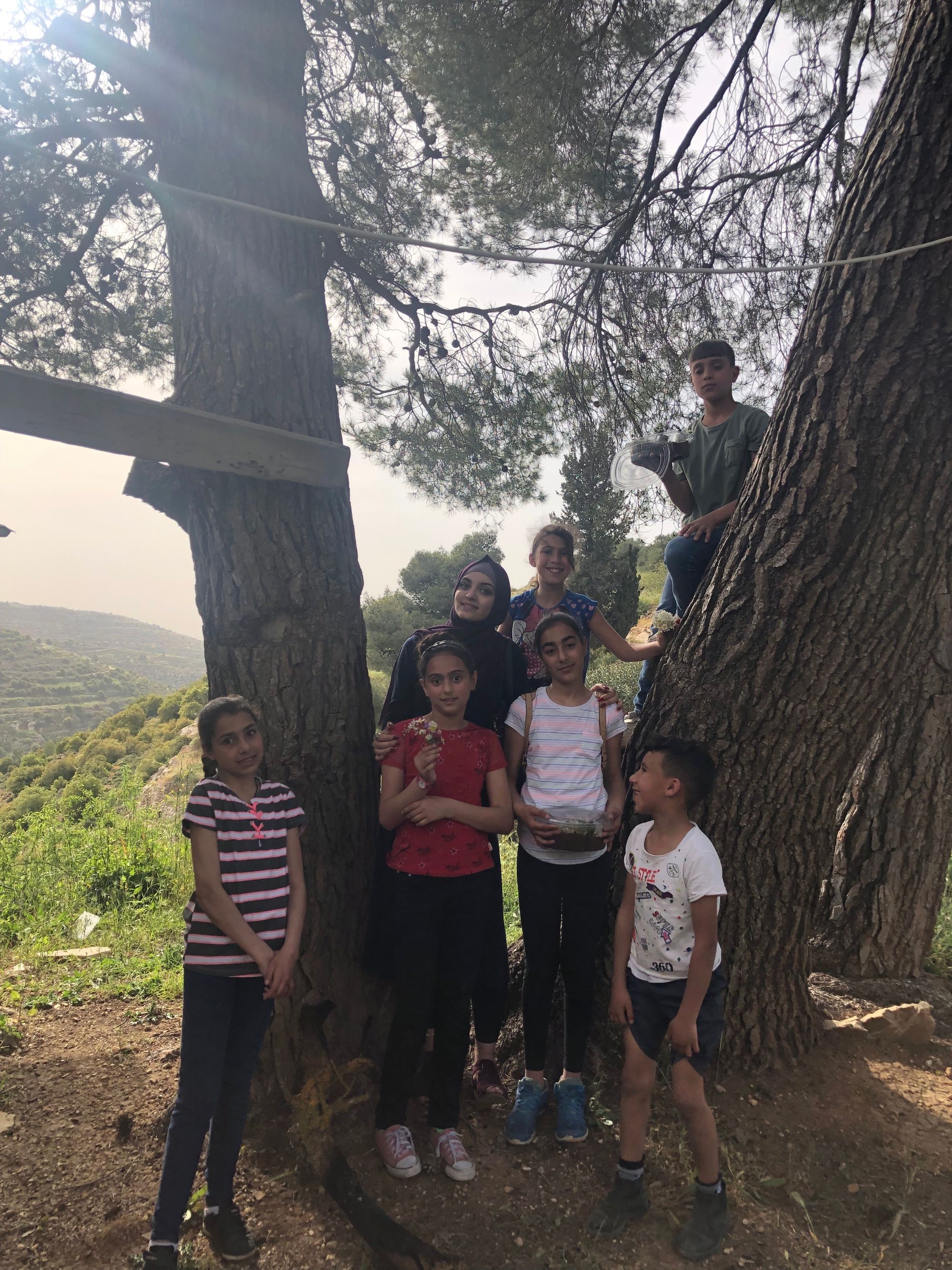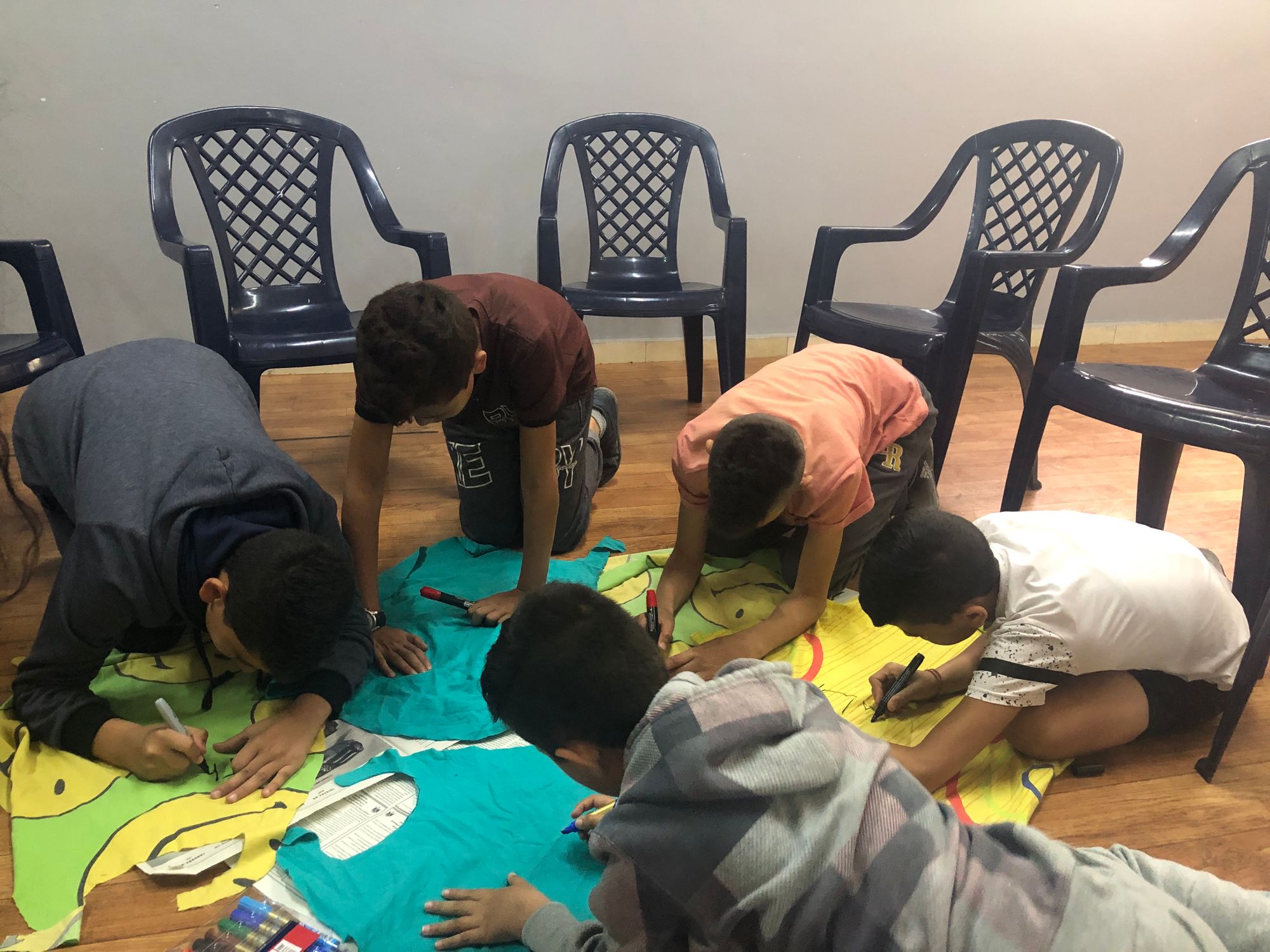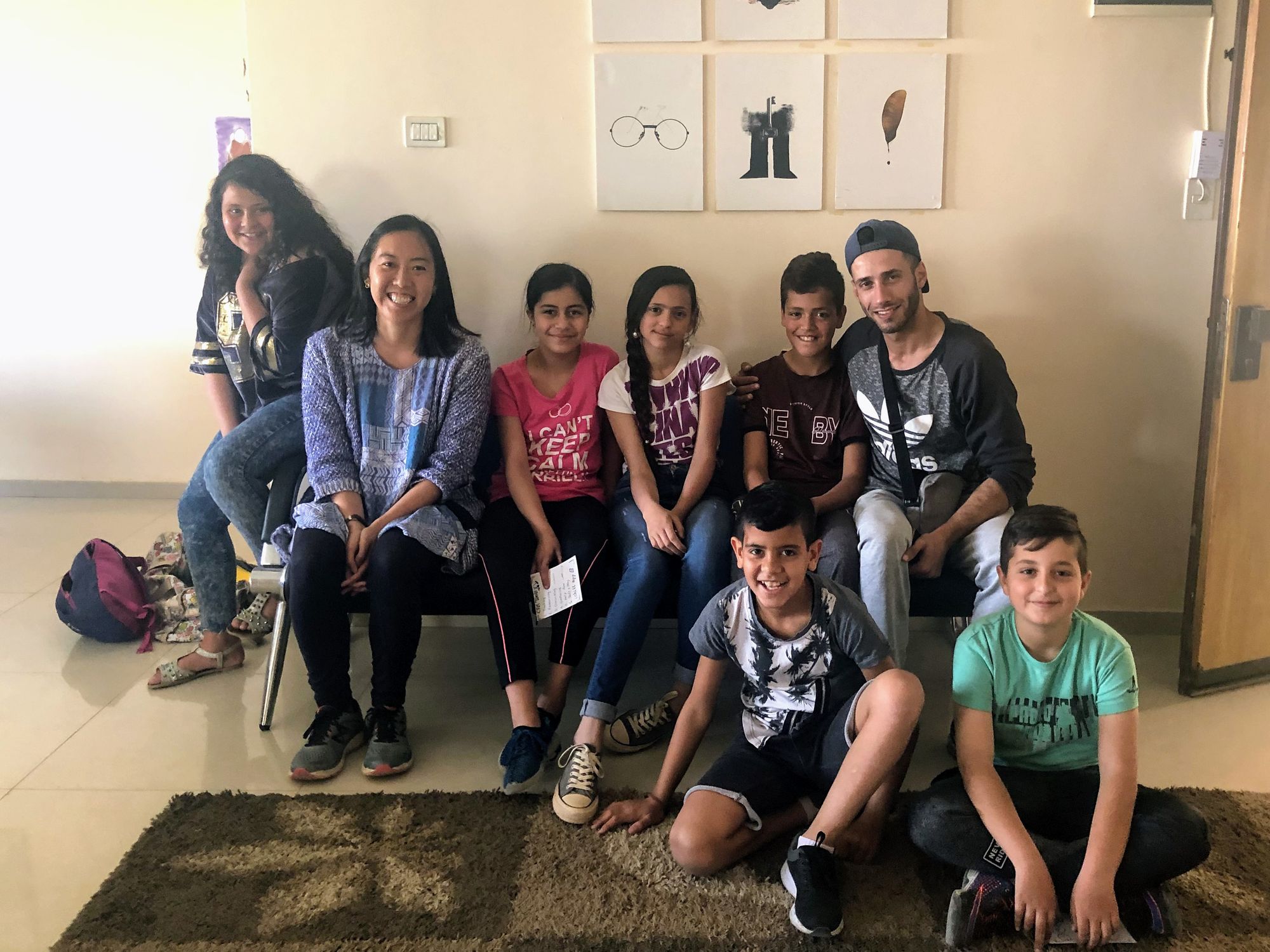Learning about life from kids in a refugee camp
Last Friday, I arrived at Dheisheh camp for my last session of my resiliency workshop with kids. A dust storm had just swept through Bethlehem, and the camp was coated with more dust and haze than usual. The kids wandered in slowly from the street. The door to Shoruq was locked, so the kids and I sat on the cement stairs and waited for Ali and friends to arrive with the key.
No key was forthcoming, and I felt my habit energy of anger and blame arising. Why hadn’t we prepared for this possibility? I could see my mind leaping to conclusions about who was responsible, but I didn’t want to dwell in the anger and blame this time. Instead, I welcomed in gratitude for my collaborator Ali, for his focus and persistence in looking for a key this morning. For his ability to speak mostly fluent English and for his work with the kids, that has built the trust and relationship that motivated them to show up on this day. Sitting with the kids unable to communicate in words, I felt old pain arise. Maybe the kids thought I was boring or saw me as an outsider, maybe I didn’t belong here in Dheisheh with them. The thought arose in my mind, and again, I consciously chose another path. Why not play with the kids in a way that doesn’t require language? My mind became energized and creative: what could I do?
My eyes caught on a big plastic water bottle lying in the street. Maybe we could kick it around and play soccer, I thought. It was a great hypothesis. I kicked it to Murad and he kicked it back, understanding immediately my intention. Taleen stood up too, and the three of us passed the ball in circles, laughing. Taleen left, and Murad and I began racing around the dusty parking lot of Shoruq. The mural wall became our single goal, the abandoned taxicab the left border of the field. We ran, weaving with the plastic bottle, playing defense, shooting towards the goal. It was incredibly fun. I forgot that I was waiting for a key to open the door to start the workshop and focused on playing. What freedom in letting go of how things “must” be and inviting in the way they are.
A few minutes later, Ali showed up sans key. We called Sophie, our other translator, and her dad drove her within minutes with a key to another door — his NGO was across the hall from Shoruq and we could use his kitchen. The space was beautiful and dusty, and we wiped the tabletops down before the kids claimed their chairs.
We experimented with Help Now, and the kids touched surprisingly depth and focus. When I asked which tasks they enjoyed, they responded: Listening to the sounds. The colors. Sounds. Sounds. Drinking the water. The space was peaceful and quiet, immune to the sounds of honking cars or construction outside. Instead, they heard the chirping of the birds, the rush of the wind, the silence.
I asked them where they could use the tools they had learned. When do they notice that they are out of the resilient zone, and what do they do?
One boy turned to me and said in Arabic: I’m afraid when the Israeli army raids the camp. My heart broke. I summoned the peace that was easily (and strangely) available to me, and asked what helps him to get through those times. A glass of water and his mother praying over him, he said. I was humbled; he and his family were already resilient, using existing resources to create calm and consistency in times of great stress. We talked about what we can and cannot control: we can’t always control if the Israeli army enters the camp, but we can control our response. We can give ourselves the space to think, to calm our body, and to act from a place of strength. And in doing so, we can bring peace to our families too.
If I can find peace on the streets of Dheisheh playing soccer with a plastic water bottle, what else is needed? Every moment has the potential to be sufficient as it is: I do not need to chase novelty or remove discomfort. Conversely, if I choose to perceive the moment as insufficient, I will constantly be striving. Nothing will be good enough: I’ll accumulate material goods and curate my environment as a means of avoiding discomfort in the body and mind. And this will persist, I will continue to pursue bigger and grander things as a means of avoiding sufficiency right now, in discomfort and pain and sorrow.
If this moment is sufficient, I can have my meeting in the parking lot, on the roof, or in another organization’s kitchen. If this moment is sufficient, a plastic water bottle transforms seamlessly into a soccer ball. Peace becomes possible in this present moment, and the seeds of peace are planted for future moments of discomfort. Resiliency through change is the fruit of these peaceful seeds.
An open heart is the blossoming flower.



